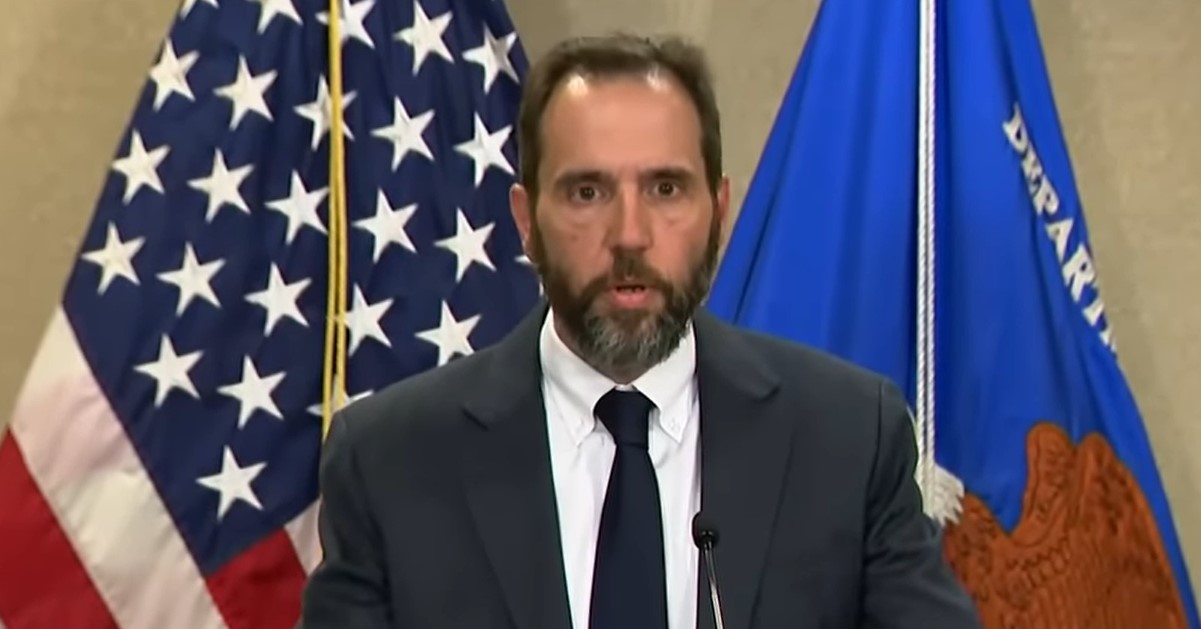Special Counsel Smith takes on Judge Cannon in classified documents case, demands she allow him to secretly file information about witnesses under seal
Special Counsel Jack Smith has on multiple prior occasions accused former President Donald Trump of intimidating and threatening actual or potential witnesses against him, and as such has fought to keep filings containing information about said witnesses secret and sealed from public view.
Smith is now urging U.S. District Judge Aileen Cannon, who is presiding over the classified documents prosecution of Trump, to reconsider one of her prior orders that would seemingly allow Trump to publicly disclose information about witnesses and their testimony in a response motion, The Hill reported.
Though it is rare but not entirely unheard of for a judge to be asked to reconsider one of their own orders, this is actually the second time that Smith has done so in this particular case, which is likely a sign of his frustration and dissatisfaction with how the Trump-appointed jurist in South Florida is handling the prosecution of the former president who placed her on the bench.
Smith demands judge allow him to file documents in secret
On Thursday, Special Counsel Smith filed a 22-page motion to reconsider that called out Judge Cannon for two recent orders denying his requests to seal information about witnesses and their testimony that had been turned over to the defendants as part of the discovery process.
"That discovery material, if publicly docketed in unredacted form as the Court has ordered, would disclose the identities of numerous potential witnesses, along with the substance of the statements they made to the FBI or the grand jury, exposing them to significant and immediate risks of threats, intimidation, and harassment, as has already happened to witnesses, law enforcement agents, judicial officers, and Department of Justice employees whose identities have been disclosed in cases in which defendant Trump is involved," the filing stated.
Smith went on to assert that Cannon's "conclusion was wrong" and that she "applied the wrong legal standard" in her decision to allow the defense filings containing the discovery material with only the names of the potential witnesses redacted rather than completely under seal.
"The Court’s Orders require the public identification of more than two dozen people who participated in the investigation. Some may never testify at trial and therefore would otherwise be able to retain their anonymity and privacy absent the Court’s Orders," Smith's motion stated. "Others are expected to provide important trial testimony and will likely be subject to threats, intimidation, and harassment if their identities are revealed -- a likelihood that is concrete and palpable in this case, as the record reveals and other judges have recognized."
Smith warns in filing of alleged threats to witnesses
Just one day earlier, Special Counsel Smith had filed a three-page motion on Wednesday that sought the court's permission to file a particular document entirely under seal and in secret while also serving notice of the motion to reconsider that it intended to file about Judge Cannon's prior orders.
"The exhibit describes in some detail threats that have been made over social media to a prospective Government witness and the surrounding circumstances, and the fact that those threats are the subject of an ongoing federal investigation being handled by a United States Attorney’s Office," Smith asserted in the Wednesday filing. "Disclosure of the details and circumstances of the threats risks disrupting the investigation."
"Means short of sealing the exhibit, e.g., redaction of persons’ names, will not suffice to protect the integrity of the investigation because even with such names redacted, the details of the exhibit could reveal investigative methods, potentially further endanger the victim, and/or provide information to the suspect to which he/she may not otherwise be entitled," the motion continued.
Smith added, "For these reasons, the Government requests an order authorizing it to file an exhibit to its Motion for Reconsideration ex parte and under seal, and directing that the exhibit remain under seal until the investigation to which it relates is either closed or resolved by adjudication of any resultant charges, or until further order of the Court."
Smith likely still unhappy with Cannon's orders
According to the case docket, this particular conflict between the prosecutor and judge began on Feb. 2 when Special Counsel Smith filed a sealed motion that sought permission to file additional motions and exhibits with redactions and under seal to be kept hidden from the general public.
Judge Cannon ordered both that the Feb. 2 motion be unsealed as well as that Smith could initially file his additional documents under seal but with redactions so that they could later be unsealed.
Also, the judge issued two notable and related paperless orders on Friday, the first of which set deadlines for later this month for the defendants to file their responses to Smith's motion to reconsider, while the second order appeared to at least temporarily seal the exhibits in question, as Smith had previously requested, but also instructed Smith to turn them over to the defendants and indicated that they could be unsealed at a later date.






